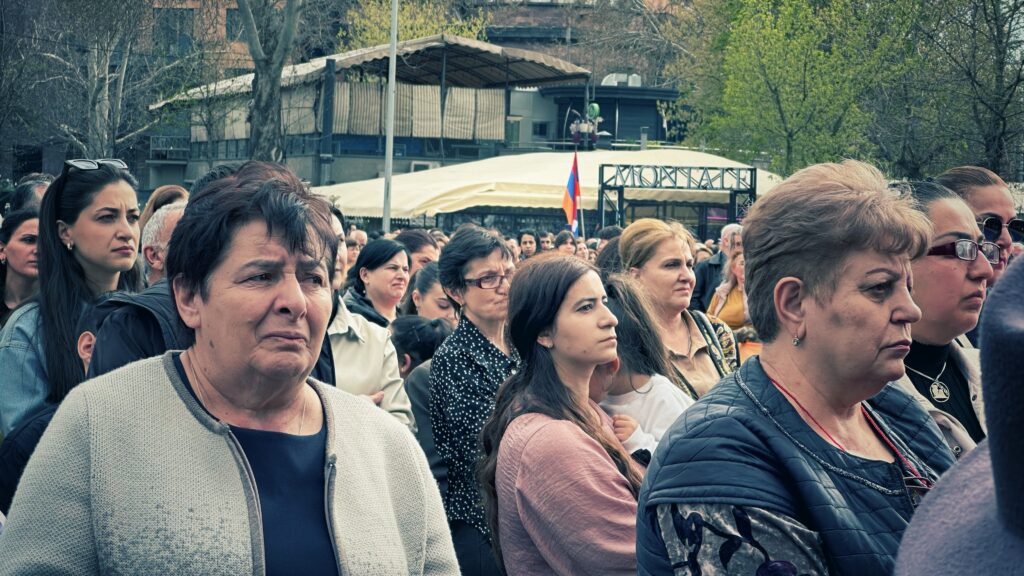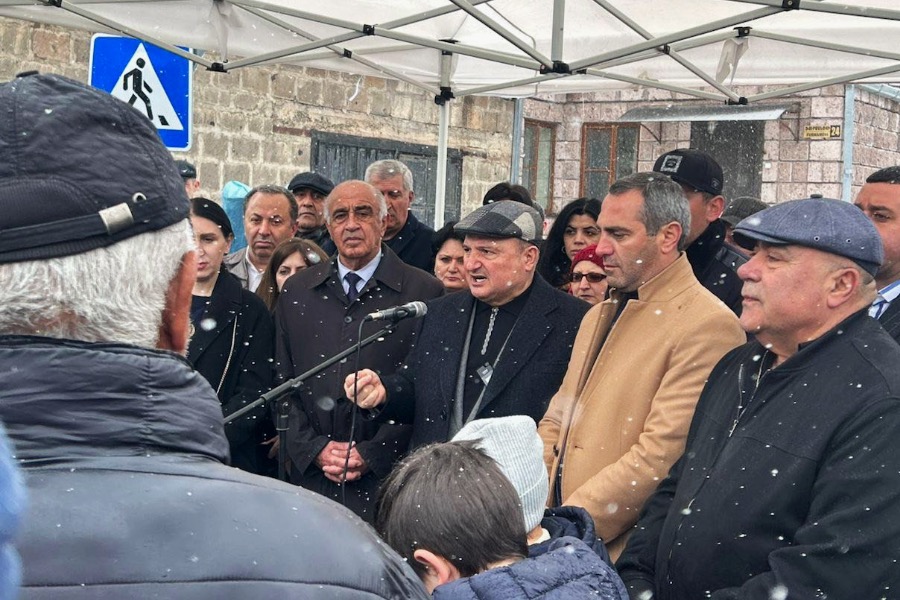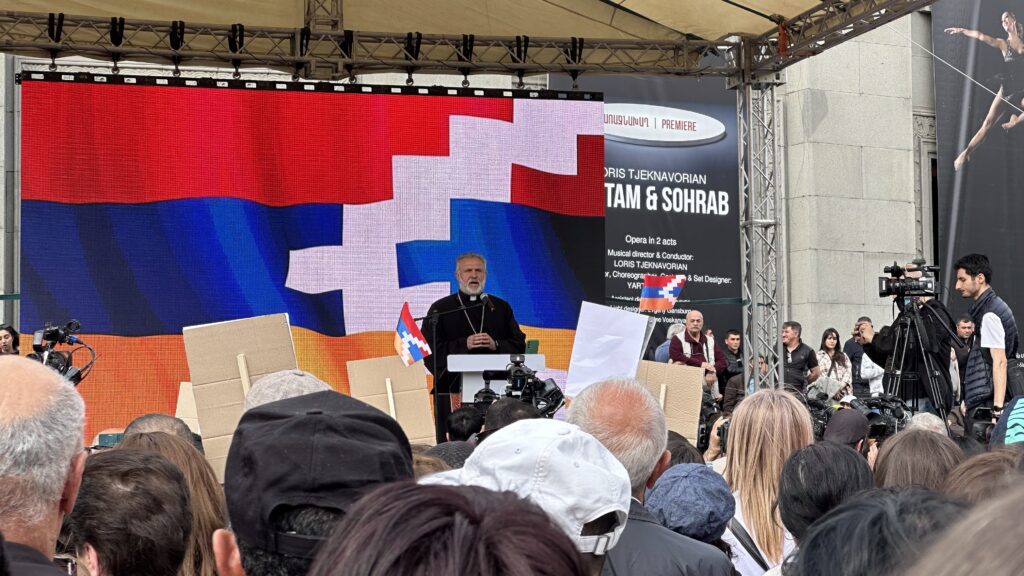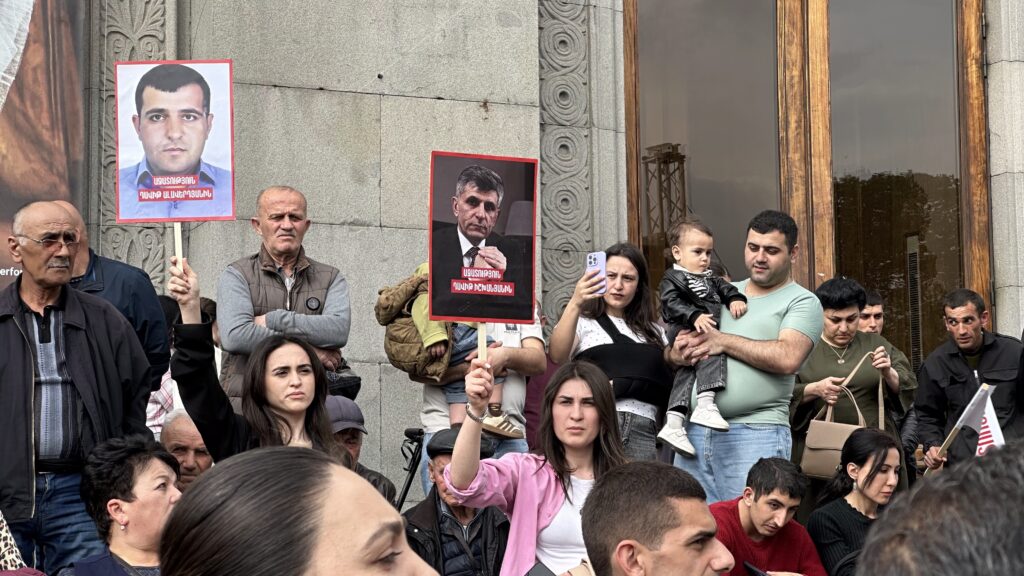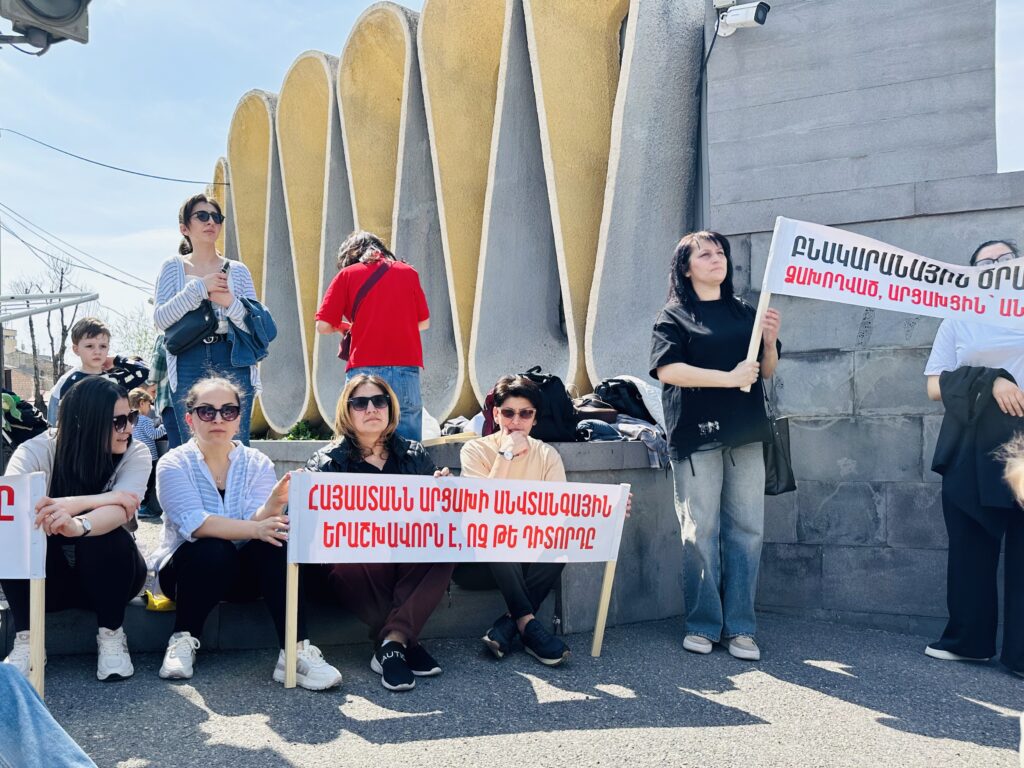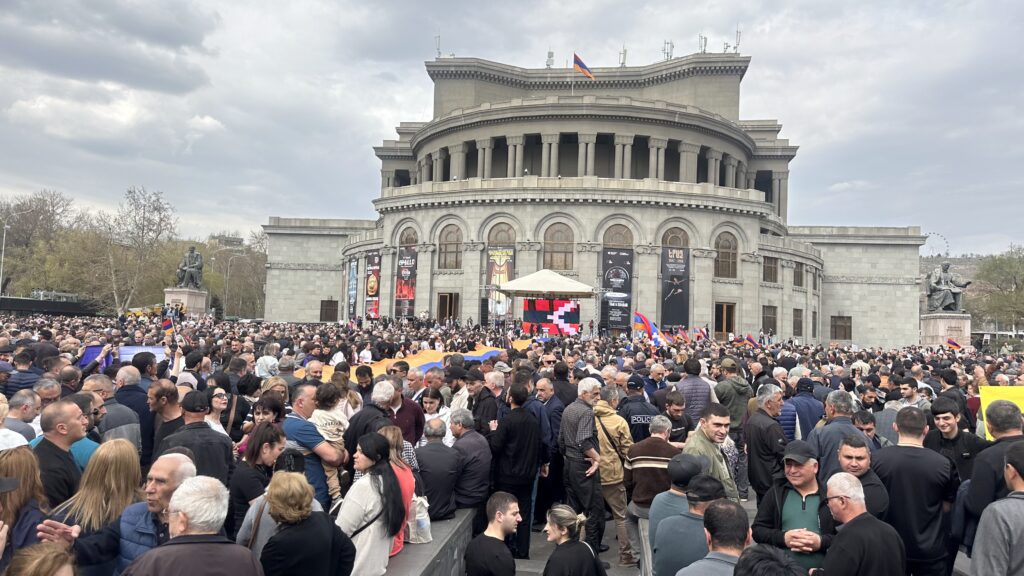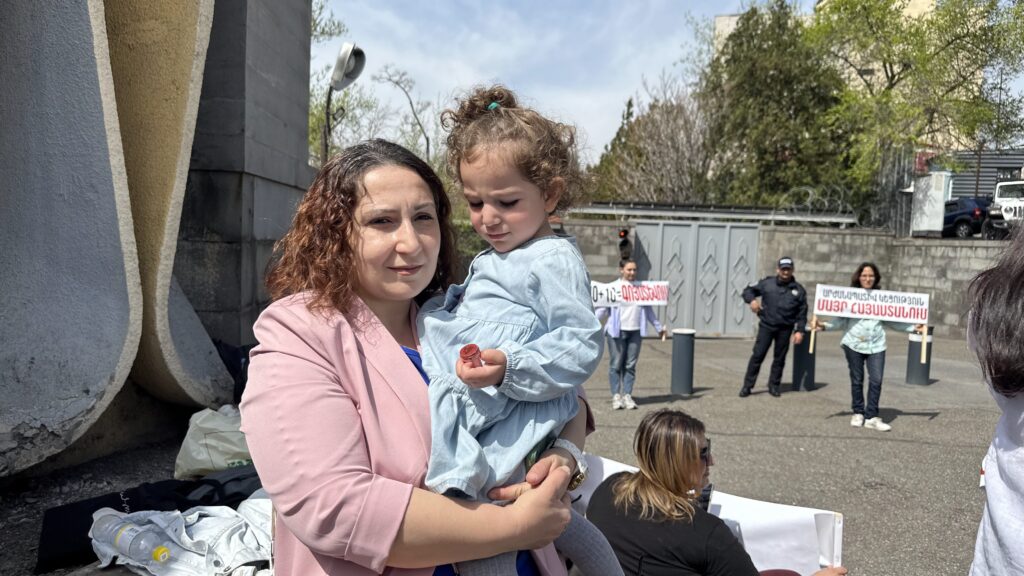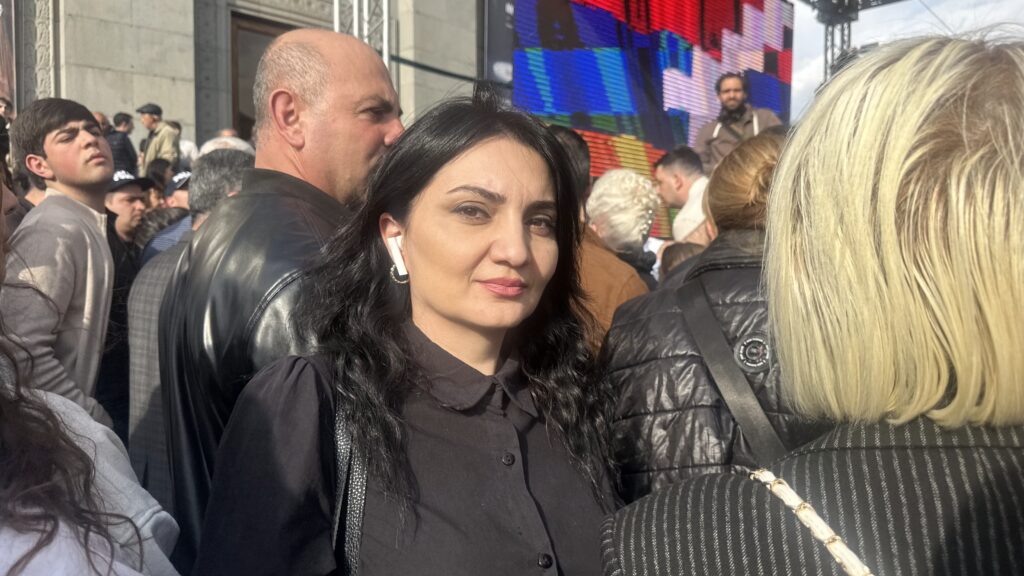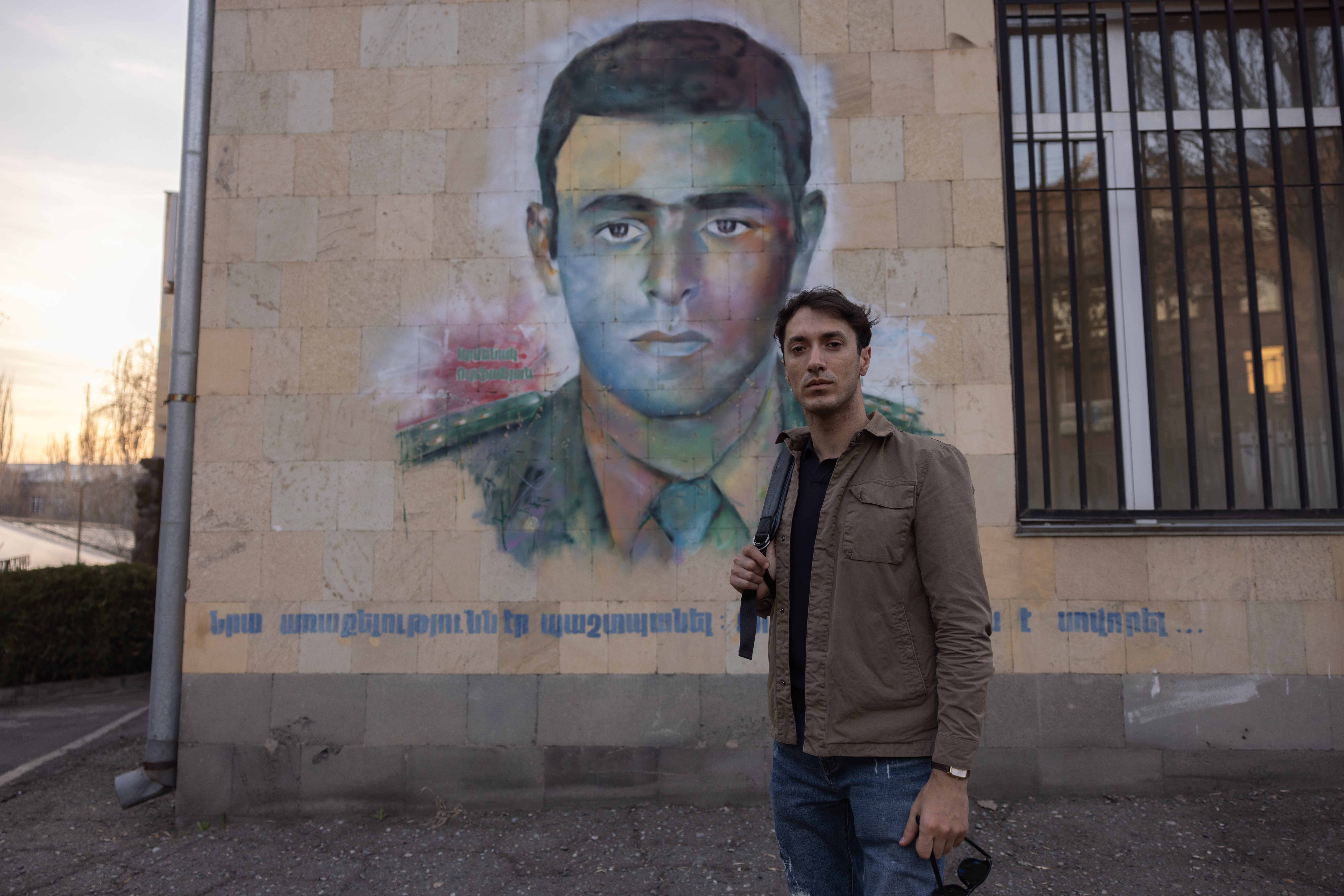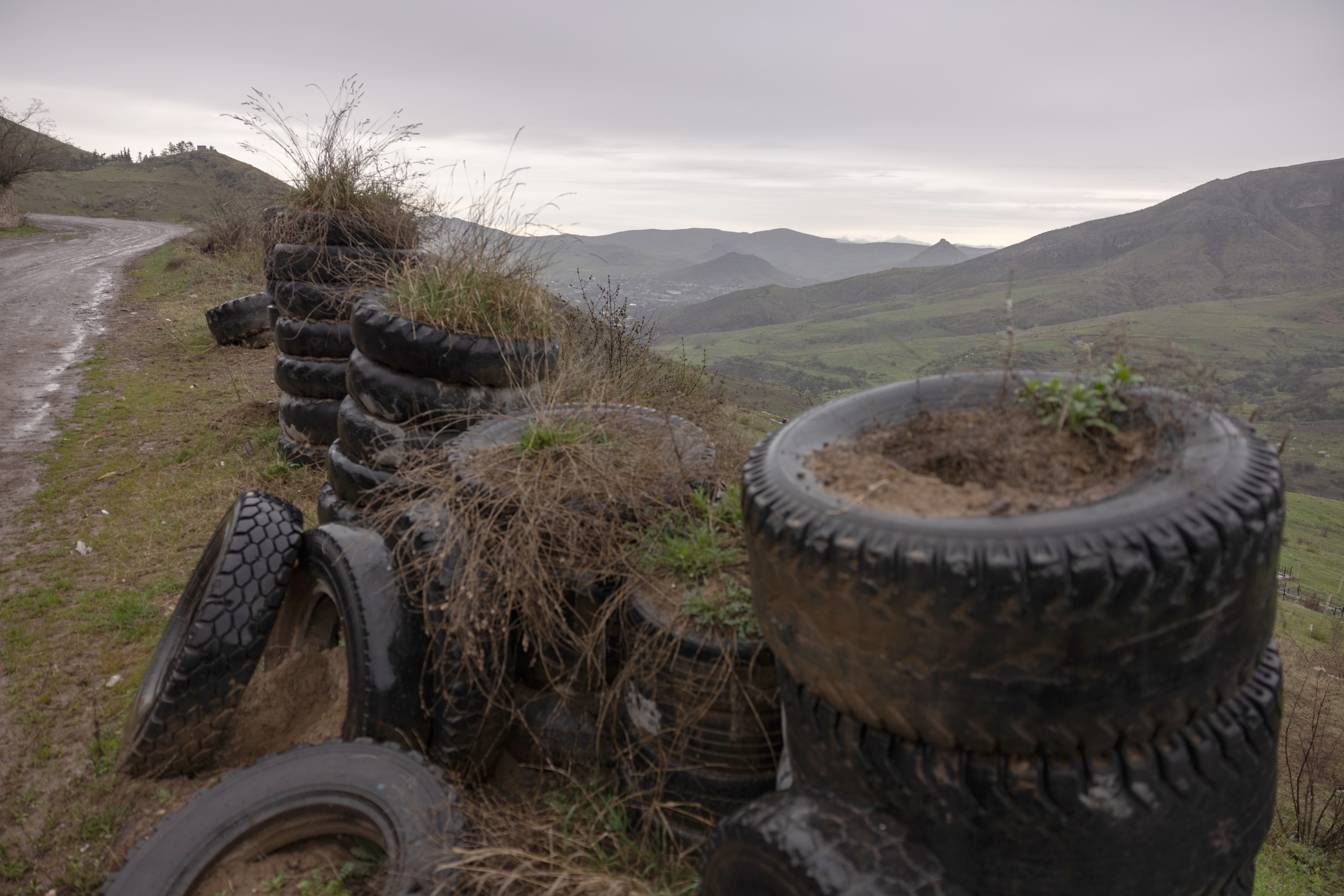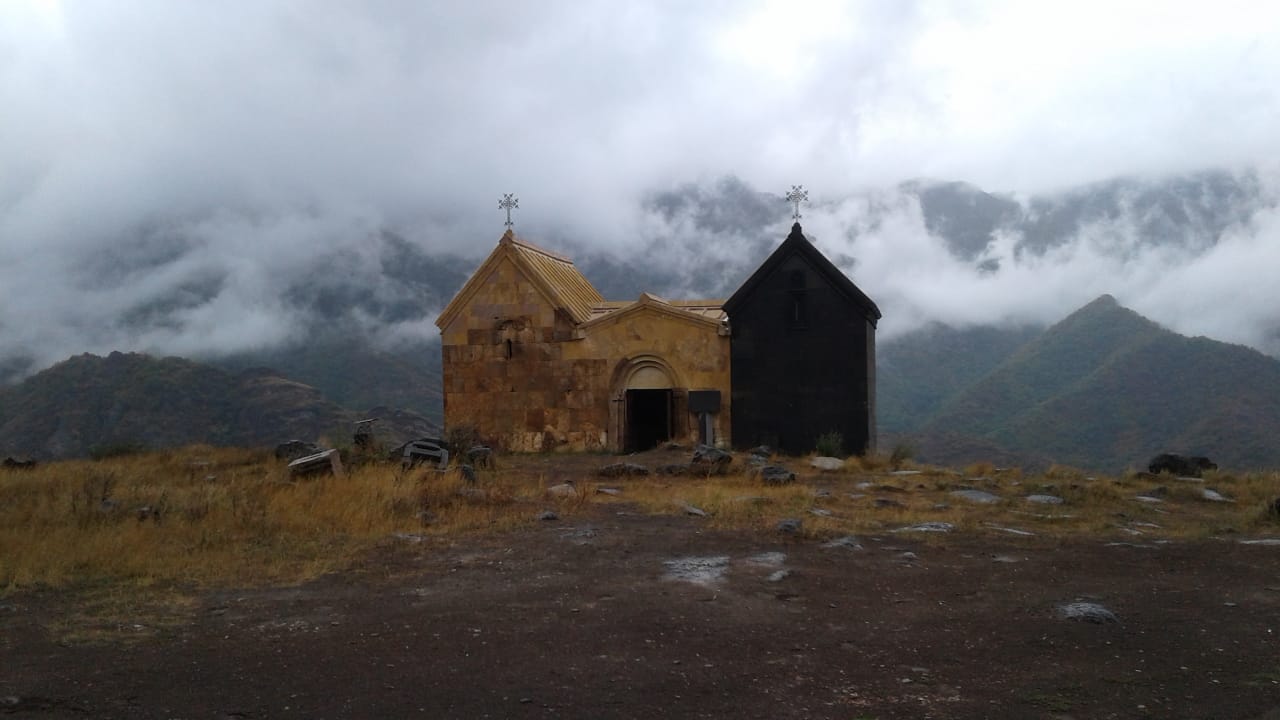Rallies in Yerevan demand rights and dignity for Artsakh’s displaced Armenians
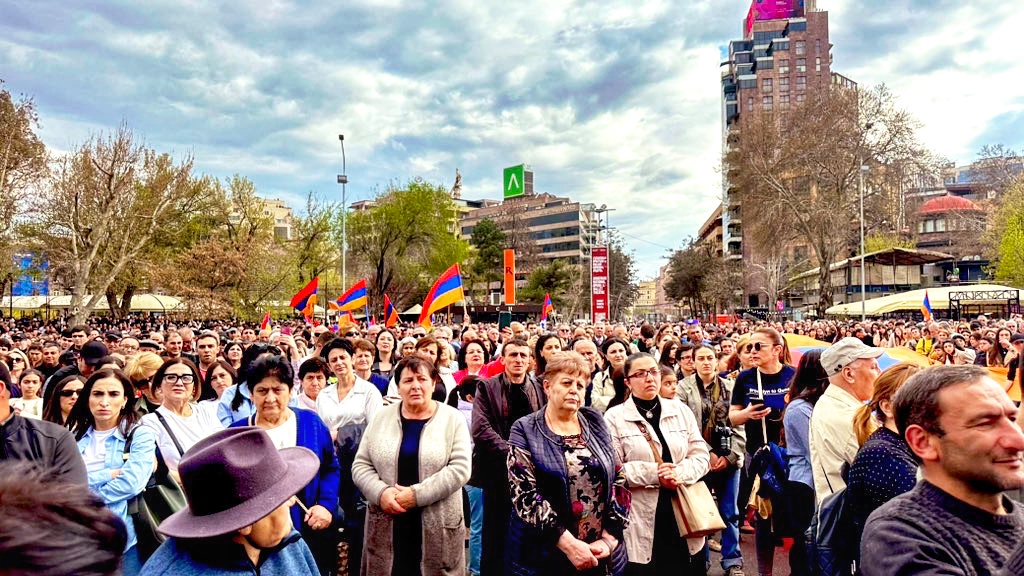
YEREVAN—On March 29, Yerevan’s Freedom Square was the epicenter of a significant demonstration, as over 10,000 people rallied under the banner “Together for Our Rights.” Organized by the Council for the Protection of the Rights of Artsakh Armenians, the protest aimed to amplify the voices of Artsakh’s displaced population and shed light on their ongoing struggles.
Gegham Stepanyan, Human Rights Defender of Artsakh, delivered a compelling speech during the rally, addressing the critical challenges faced by the more than 100,000 Armenians forcibly displaced from Artsakh under threats of physical annihilation. He underscored their collective right to return to their homeland safely and with dignity and called on Armenian authorities and international stakeholders to take decisive measures to ensure their safe return.

“The people of Artsakh gathered here today wake up and go to sleep every day with the hope and faith of returning to their homes,” Stepanyan stated. “Do not let the weight of social hardship extinguish the drive and hope within you to return to Artsakh.”
Stepanyan also highlighted the urgent need for action regarding Armenian captives held in Azerbaijani prisons. He urged Armenian authorities to pursue concrete measures, including negotiations with Azerbaijan and international legal mechanisms, to secure their release. He warned against abandoning complaints against Azerbaijan in international courts, arguing that this would violate the rights of Artsakh Armenians and others without providing alternative avenues for justice.
Stepanyan also called for preserving the internationally recognized framework for resolving the Nagorno-Karabakh conflict, particularly through the OSCE Minsk Group. He stressed that dismantling this format would undermine efforts to protect and restore the rights of Artsakh Armenians.
Lernik Hovhannisyan, chair of the Diocesan Council of the Artsakh Diocese of the Armenian Apostolic Church, also delivered a powerful speech, addressing the urgent need to protect Artsakh’s Armenian spiritual and cultural heritage, as well as its public and private property. He emphasized the necessity of activating international monitoring mechanisms and implementing punitive measures against Azerbaijan to safeguard these vital assets.
“The people of Artsakh gathered here today wake up and go to sleep every day with the hope and faith of returning to their homes.”
Hovhannisyan highlighted the ongoing destruction of Artsakh’s cultural landmarks, stating: “Today, they tell us that Gandzasar is not ours, that the 5,658 monuments are not ours. Stepanakert, the capital of Artsakh, is being subjected to destruction. They are erasing our historical traces, severing us from our roots and attempting to obliterate our identity.”
He described this systematic erasure as a form of “cultural ethnocide” unfolding before the eyes of the international community. “After forcibly displacing us, they are now subjecting our cultural heritage to cultural genocide, ensuring we forget about Artsakh altogether. Azerbaijan is methodically moving toward our annihilation, applying the same tactics it once used in Nakhichevan,” he added.

Tatevik Khachatryan, a member of the Council for the Protection of the Rights of Artsakh Armenians, delivered a speech on behalf of the mothers of Artsakh, addressing the critical need for the Armenian government to continue its housing support program for forcibly displaced families until their housing needs are fully met. The government has decided to discontinue its 40+10 financial assistance program, which provides 40,000 AMD for housing and 10,000 AMD for utilities per month, starting in April.

Khachatryan warned that many families would face eviction and be forced to emigrate if the program ends. “The people of Artsakh deserve dignity—this is not a fight for our stomachs, this is not a struggle for mere survival. The 40+10 program is irreplaceable, and halting it would leave families without alternatives,” she said.
She also underscored the broader implications of such a decision, stating that cutting support would deprive Artsakh Armenians of their ability to fight for their right to return. Khachatryan urged authorities to reconsider the decision and prioritize the rights and dignity of forcibly displaced families.

Sayida Poghosyan, head of the Nakhnayats Hetkerov (Ancestral Traces) organization, which supports vulnerable families, emphasized the importance of viewing displaced Artsakh Armenians as an asset rather than a burden.
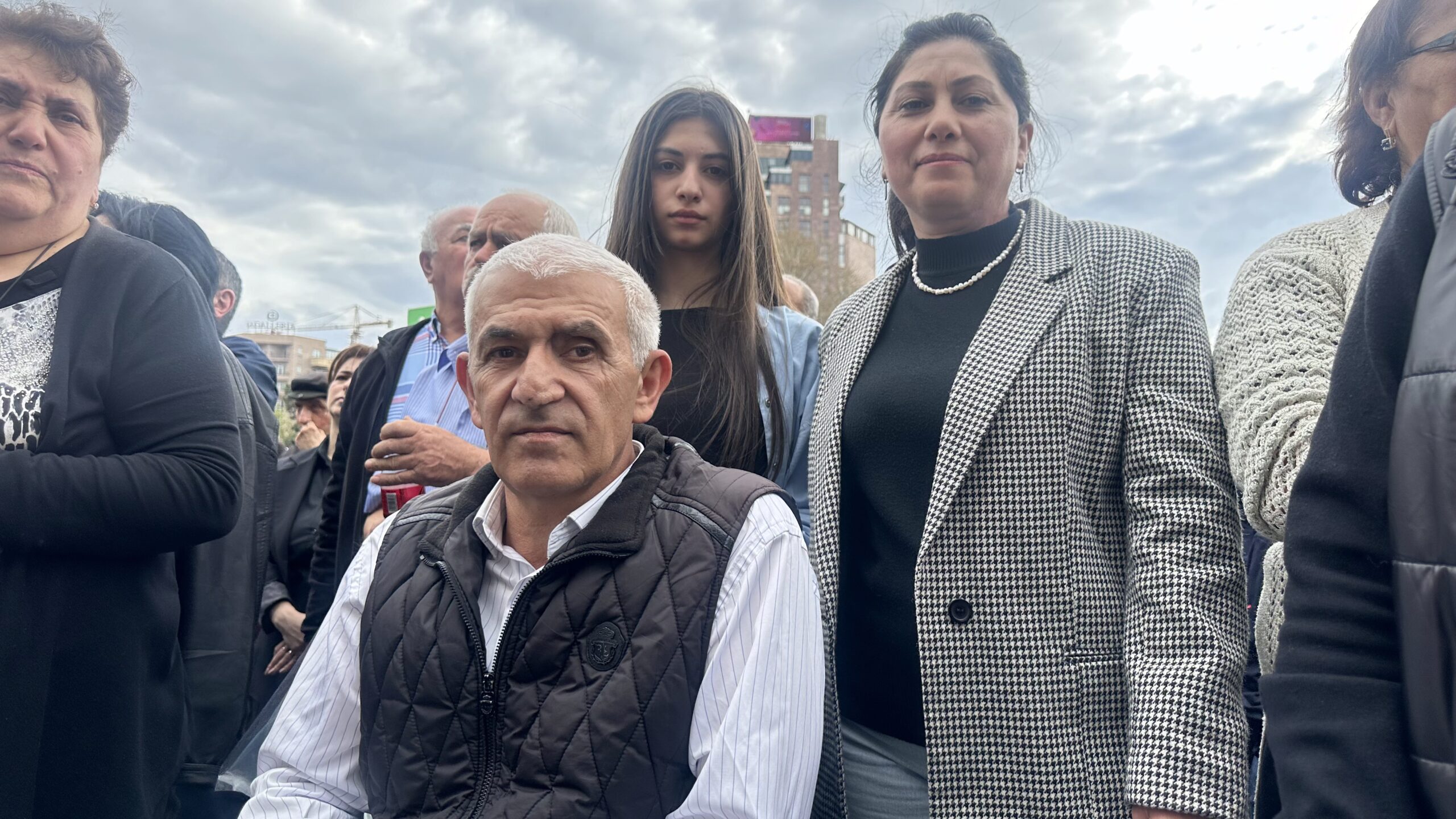
Poghosyan called for developing effective employment programs tailored to the needs of the forcibly displaced. Artsakh Armenians must be actively involved in the design and implementation of these programs to ensure they address the real challenges faced by the community, she said.
She also highlighted the Council’s readiness to propose solutions aimed at overcoming poverty in the region, creating sustainable and dignified livelihoods, and unlocking the potential of displaced families. Poghosyan expressed gratitude to all supporters, including those in the Diaspora, whose contributions have been instrumental in providing ongoing assistance to displaced Armenians.
“I participate in these protests to ensure we don’t feel like strangers in our own homeland. We are fighting not just for social support but for our rights—so that we are treated as equals and not as outsiders in Armenia.”
Zarine Sarajyan, one of the protest participants, voiced her deep concern about all the issues on the agenda, particularly the collective right to return to Artsakh. She expressed hope that their demands would not be in vain and that international actors would take them seriously.
Sargsyan highlighted the immense challenges of making ends meet while working multiple jobs, especially if the government reduces or discontinues the 40+10 program. “Without this assistance, survival will become impossible,” she said. She also criticized the practicality of the government’s proposed housing affordability program, pointing out that low-income families—including her own and the majority of displaced Artsakh Armenians—would struggle to repay such loans.
Sargsyan also spoke about the urgent need to secure the release of Armenian prisoners held in Azerbaijan. “Every day, our thoughts are with the captives,” she shared. “Our compatriots are enduring unimaginable suffering in prisons there, while we are here, fighting for their freedom and justice.”
During the rally, a 12-point petition was presented to the Armenian government and the international community. The petition included critical appeals, such as refraining from withdrawing legal complaints against Azerbaijan, dissolving the OSCE Minsk Group and adopting illegal decisions regarding Artsakh. The demands were handed over to a government representative, who was informed that the Council expects a response within seven days.
Until a satisfactory reply is received, members of the Council will remain in Freedom Square, continuing their protest from a tent set up at the site. They also announced plans to carry out further protests to raise awareness and keep the spotlight on their cause.
On March 30, a group of women and children, organized by the Artsakh Mothers’ Support Center NGO, staged a protest in front of the government summer residences. The women laid out laundry in front of Prime Minister Nikol Pashinyan’s residence, symbolizing the dire situation forcibly displaced families from Artsakh could face if the government discontinues its housing support program.
The protest aimed to highlight the potential homelessness and instability these families might endure without the program. Organizers warned that ending the support would leave countless families stranded, unable to afford housing and forced into uncertainty.
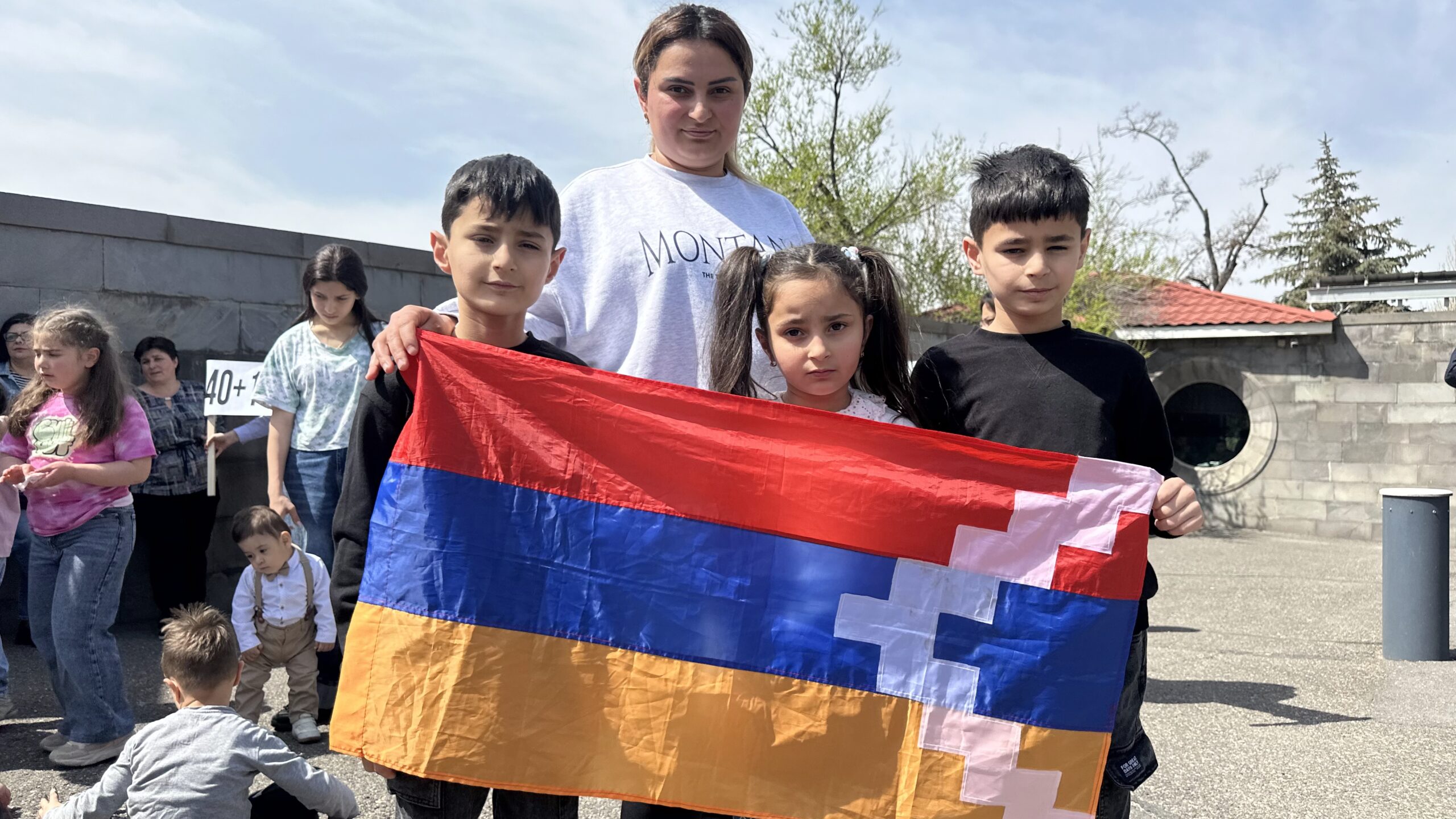
Arevik Manasyan, a mother of three minors, traveled from Tegh, a border village in Armenia, to join the protests advocating for the rights of Artsakh Armenians. Manasyan, who has been displaced twice—first from Shushi during the 2020 war and then from Stepanakert in 2023—spoke about the challenges of living in a border village where job opportunities are scarce and living conditions are difficult.
“I participate in these protests to ensure we don’t feel like strangers in our own homeland,” she said. “We are fighting not just for social support but for our rights—so that we are treated as equals and not as outsiders in Armenia.”

The next protest is planned for March 31 in front of the Ministry of Labor and Social Affairs, where concerns and proposed solutions regarding social programs for Artsakh Armenians will be presented. The demonstrators are calling for urgent action to ensure the dignity and stability of displaced families.
All photos courtesy of Siranush Sargsyan.





